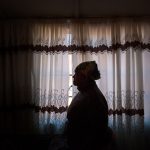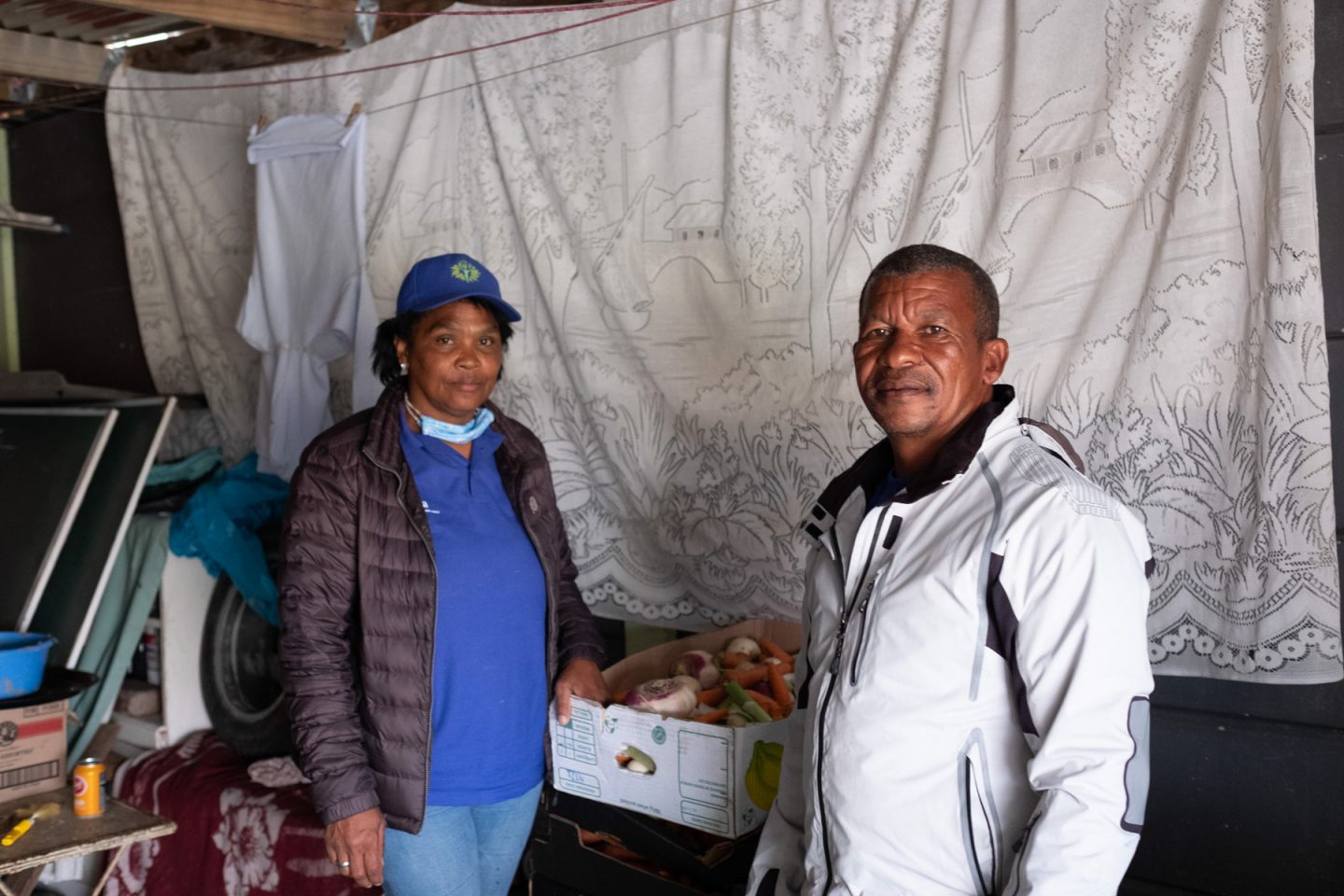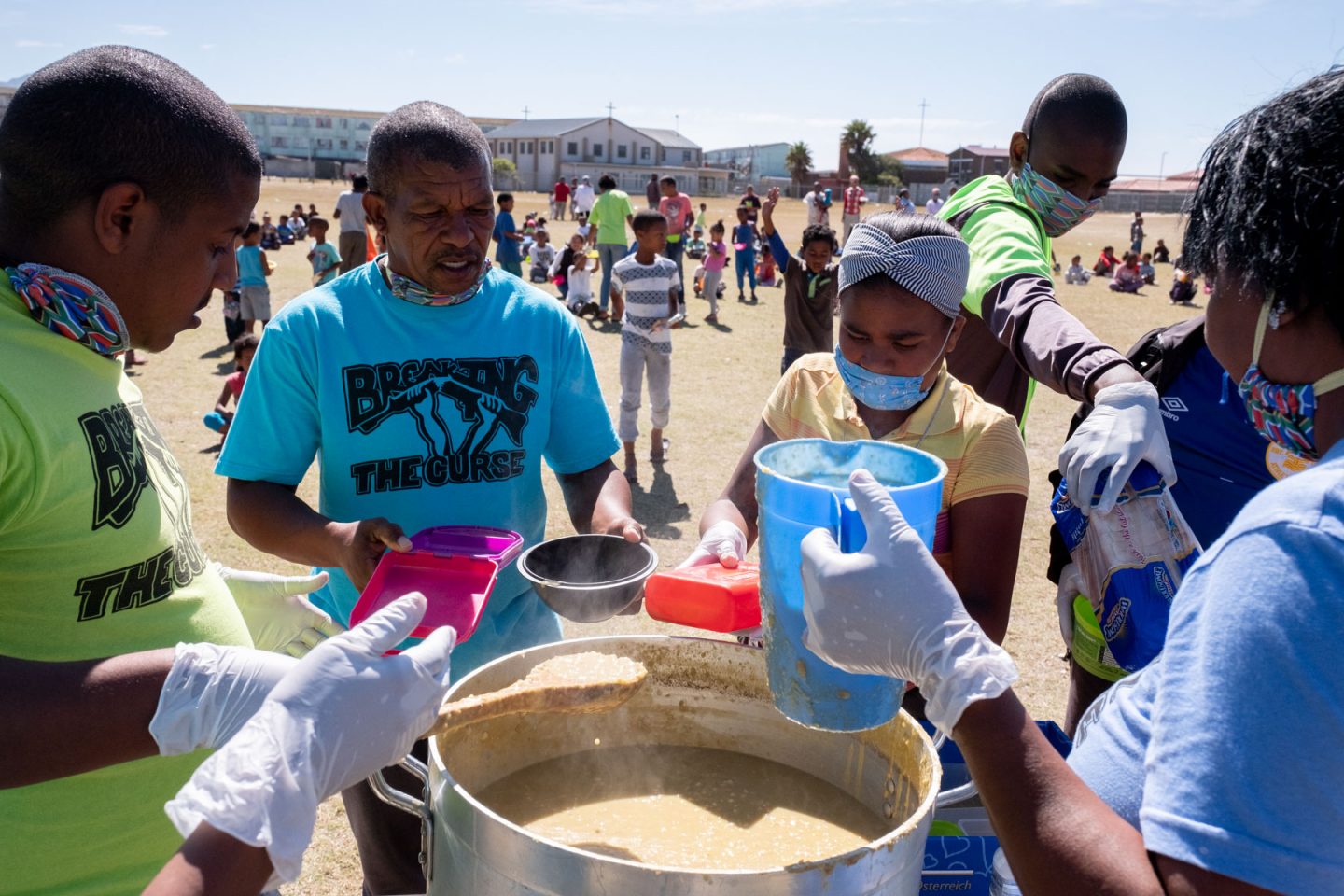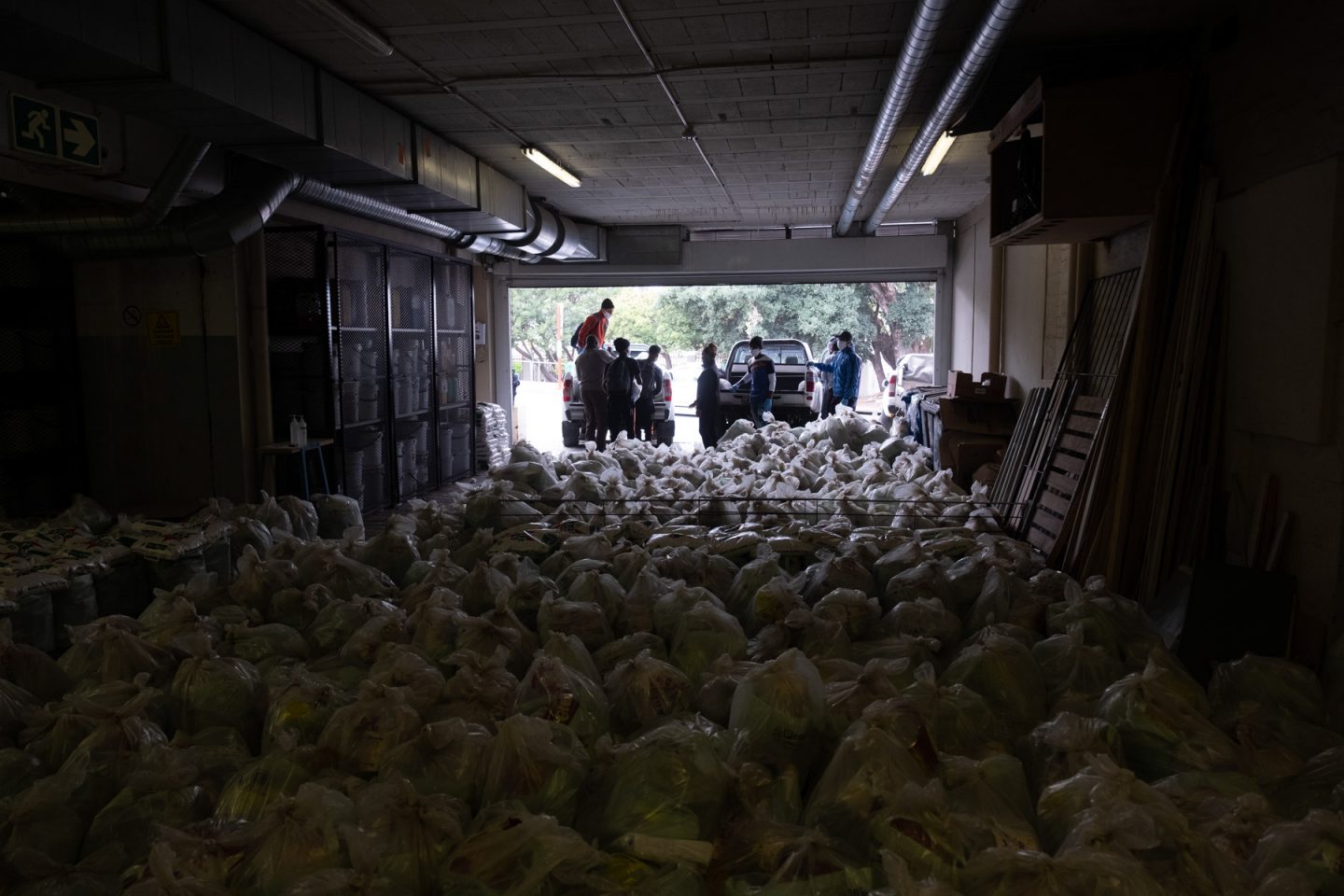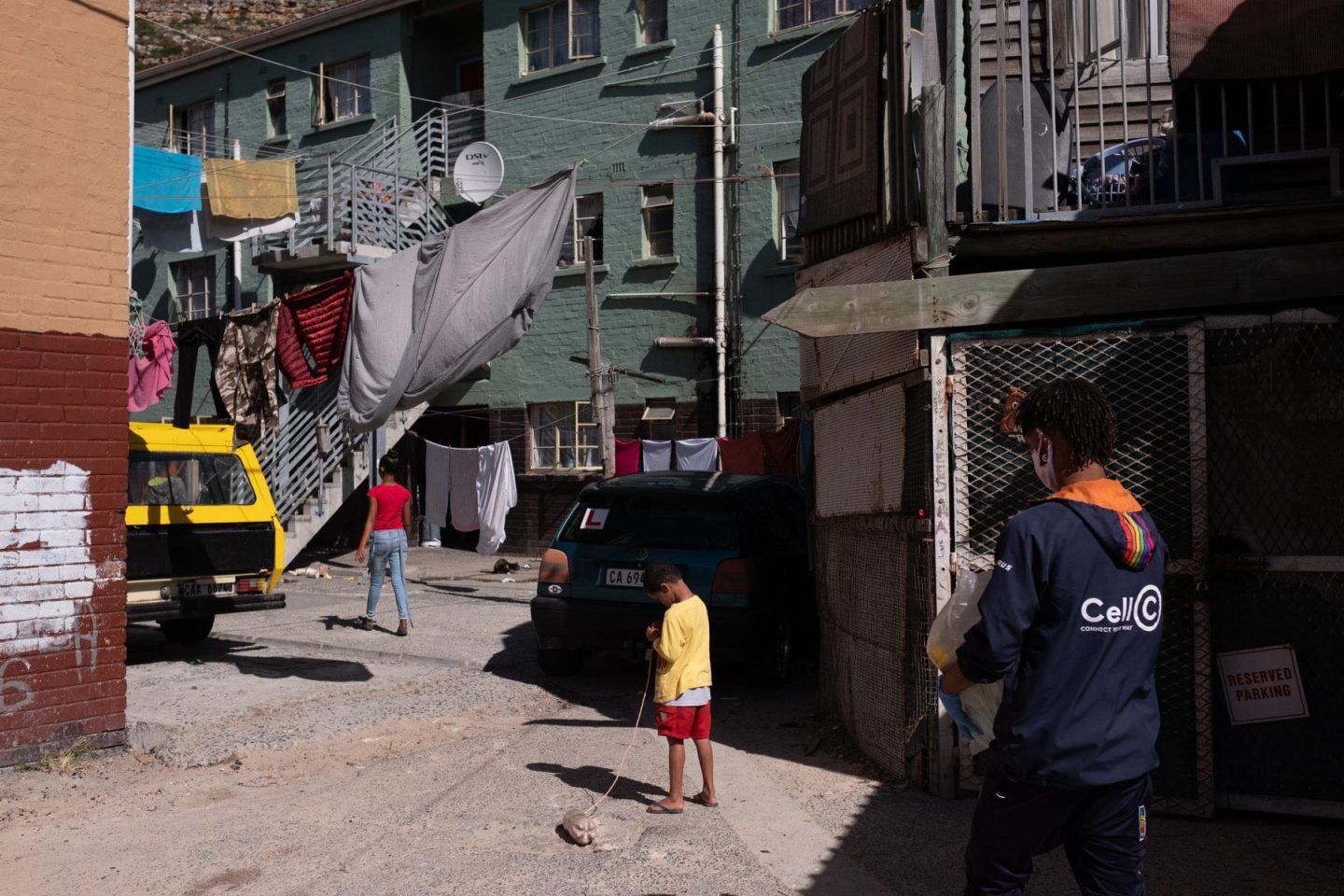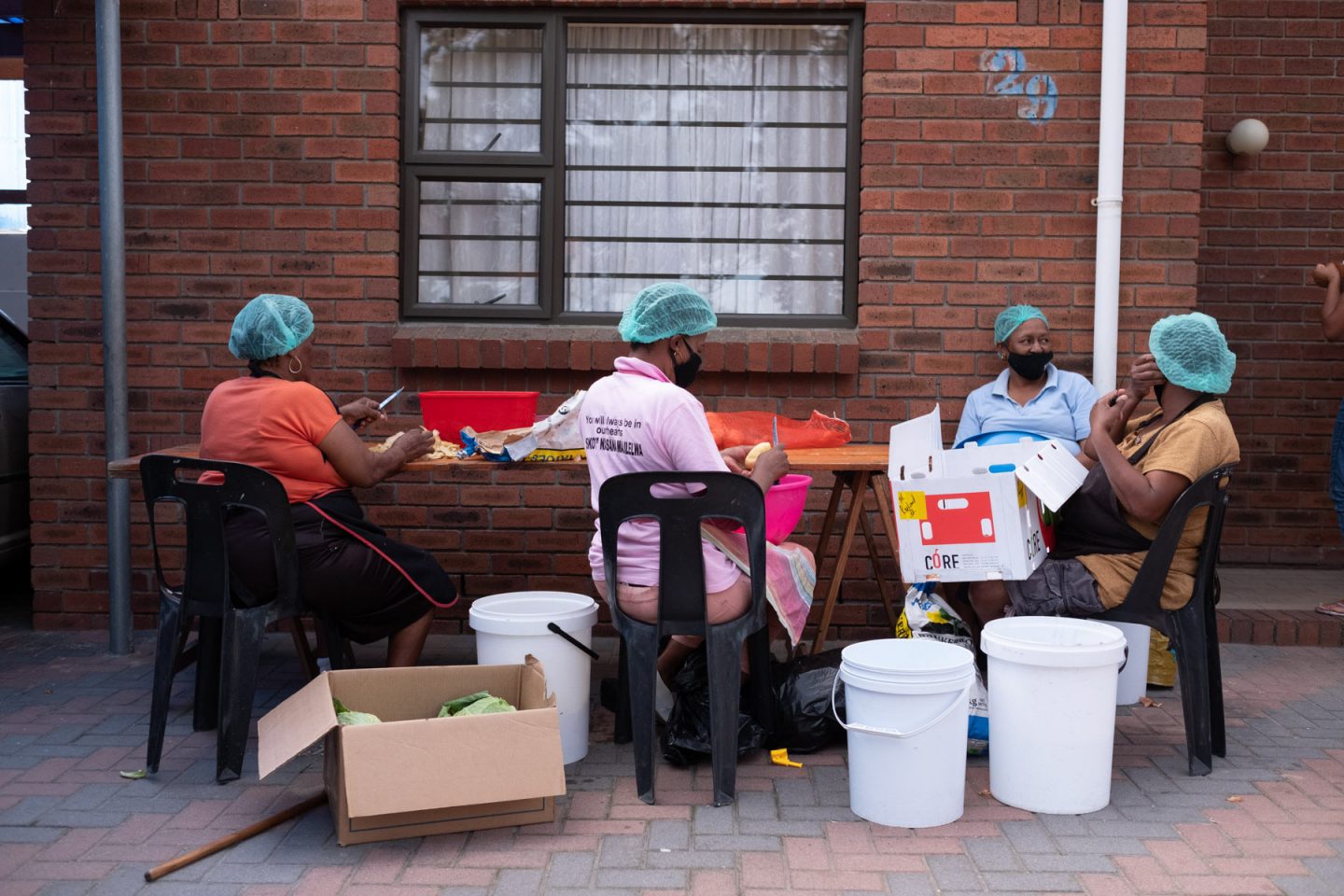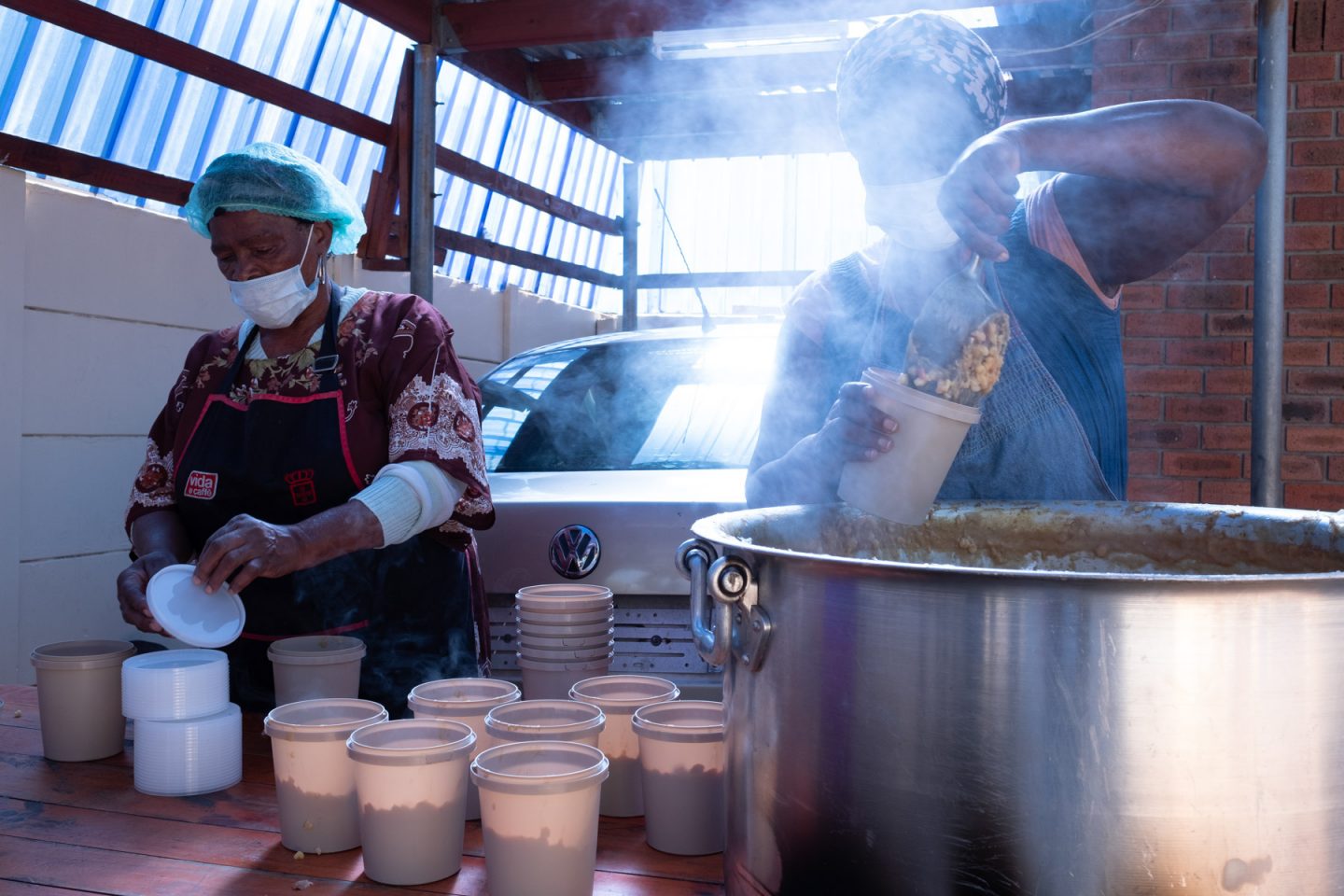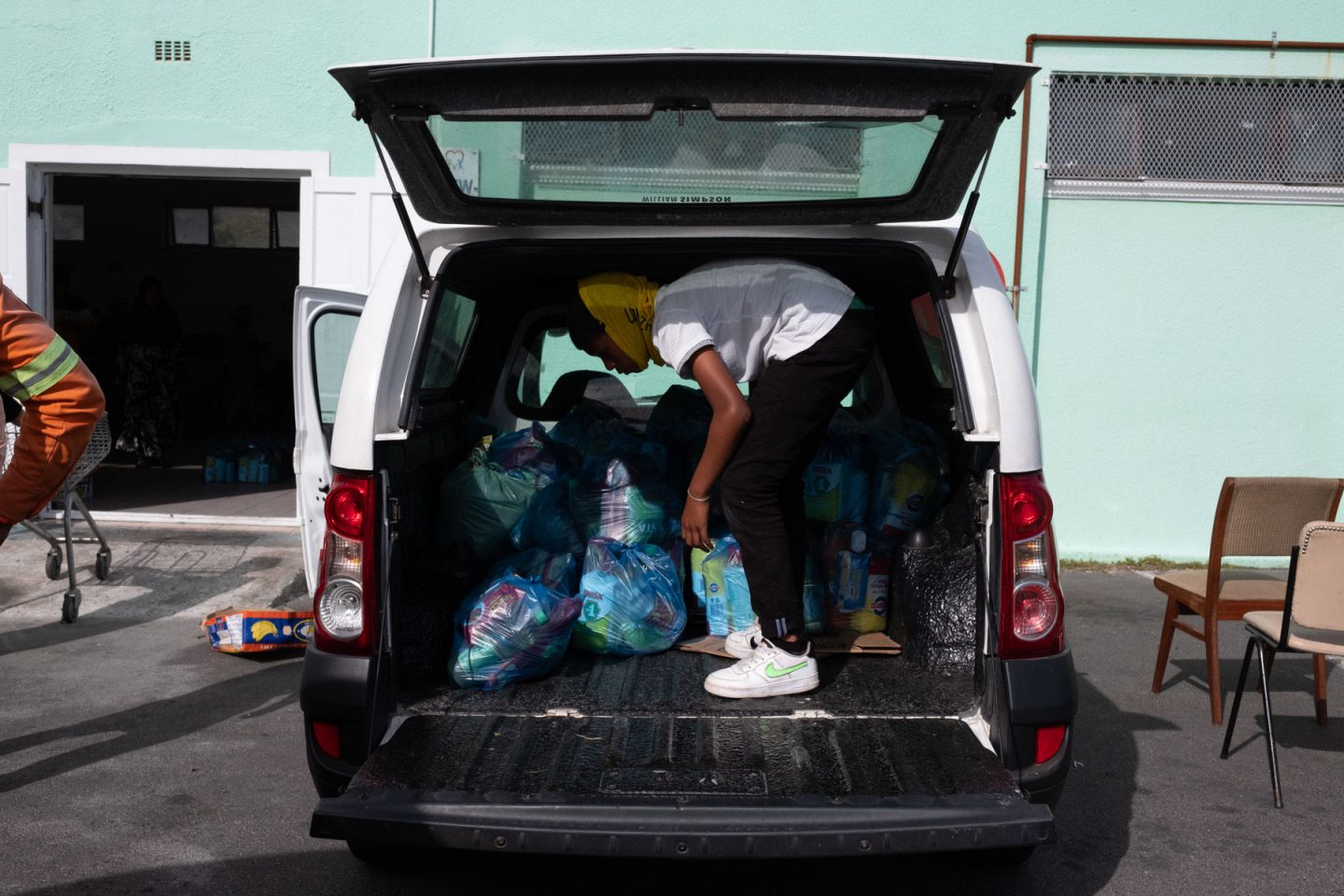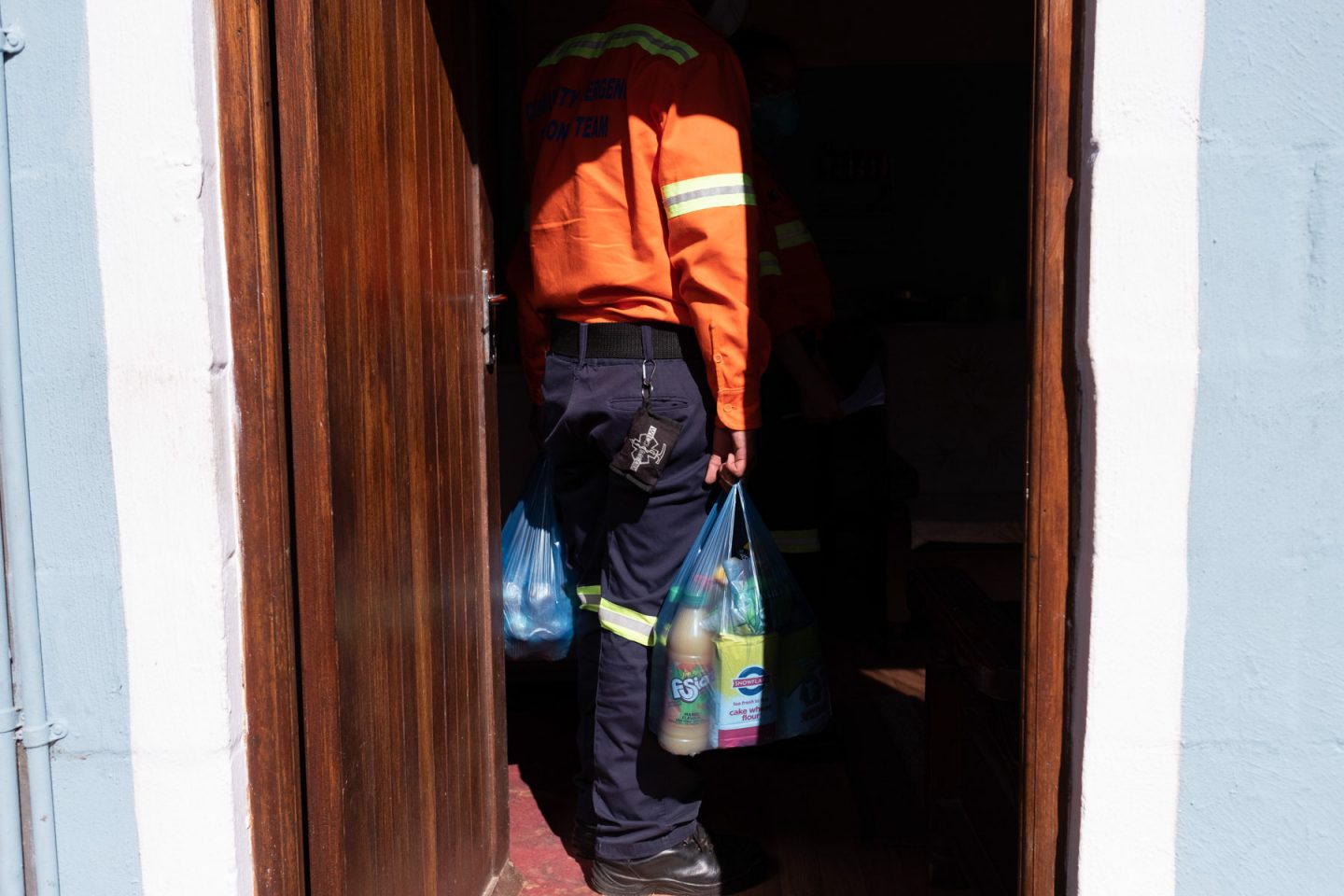Photo Essay | Capetonians come together to feed the hungry
During the government’s Covid-19 lockdown, four Western Cape communities have found ways to provide food for the hungry through collective volunteer action.
Author:
5 June 2020
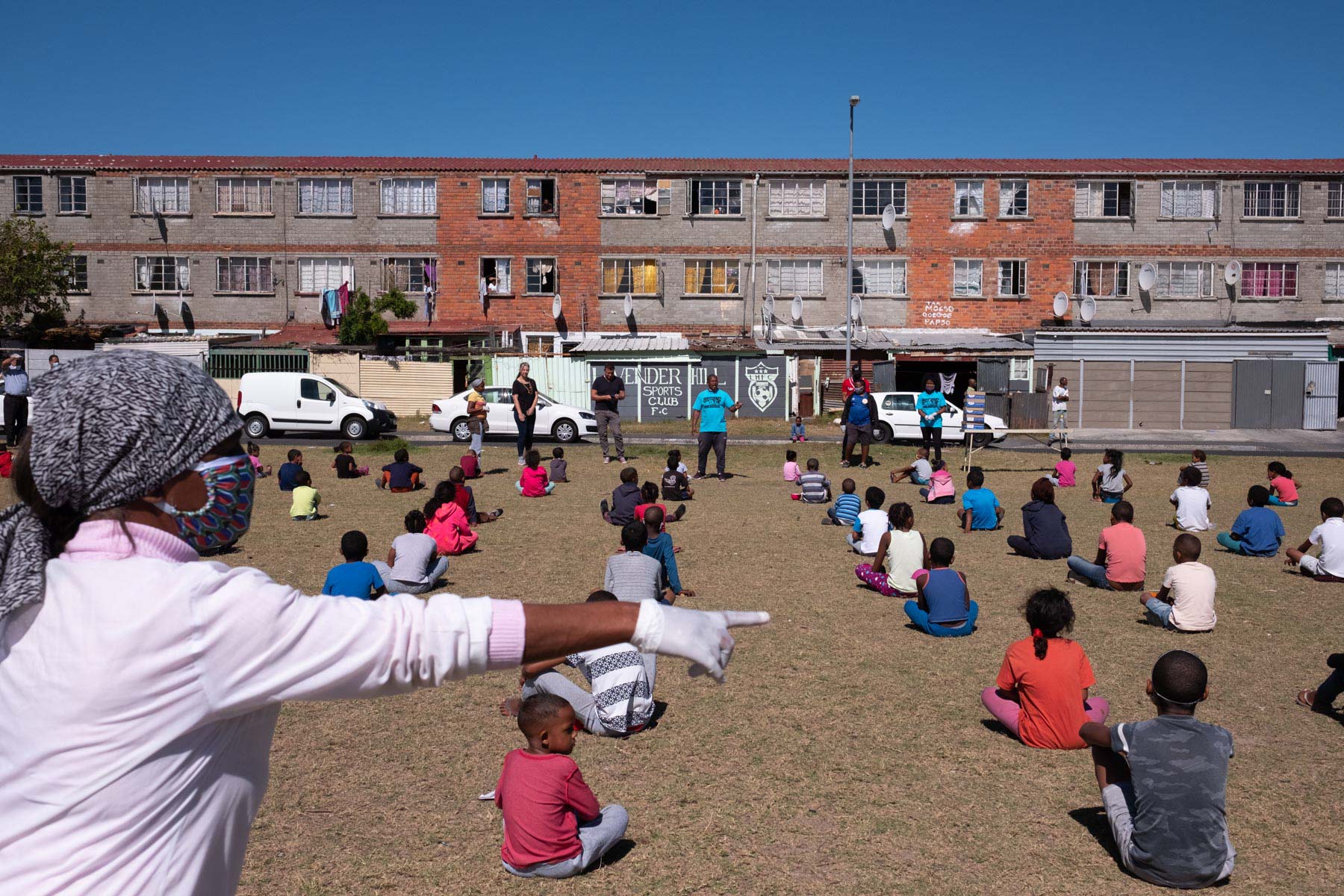
Self-organised collectives under the umbrella of the Cape Town Together Facebook group have been receiving donations to meet the needs of each community’s most vulnerable people. Called Community Action Networks, their responses have been tailored to fit the resources available to them in terms of social networks, transport infrastructure and space.
Lavender Hill

Mark Nicholson and the Lavender Hill Community Action Network operate a feeding scheme from the huge field across the road from his house. Nicholson is a pastor in Lavender Hill’s New Apostolic Church and one of the owners of the Lavender Hill Sports Club. It is impossible for him to walk down a street and not hear people greeting “Uncle Marky”. And Uncle Marky always has a quick joke on standby.
A number of sports club members have joined the Lavender Hill Community Action Network as volunteers to help feed hundreds of children a day. They decided on a soup kitchen instead of distributing food parcels as they could feed more people this way. With a steady stream of donations from various sources, they are able to provide two helpings a day, reaching about 310 children.
Related article:
The donors want the kitchen to prioritise children, the elderly and disabled people first. Sometimes this can lead to tense situations when the food left over after feeding them is not enough for the vulnerable adults waiting to be fed. Nicholson, who hates turning people away, will often make a plan to help those still waiting.
Hout Bay

The Hout Bay United football club has taken on the responsibility of delivering donated food to residents of the Imizamo Yethu shack settlement and Hangberg township that flank the pristine southern Cape Town suburb of Hout Bay. Many of the club’s players live in these areas.
The food parcels they deliver come from a range of donors, their two biggest being the Hout Bay Community Action Network and online store Yebo Fresh.
Related article:
In most cases, the club delivers parcels to a community leader who has determined which residents are most in need. They will then distribute the parcels to individual people or households. People are able to donate a food parcel to a specific person. In that case, the parcels are delivered directly to the recipient’s home.
Club chief executive Dali Fekenisi lives in Imizamo Yethu. He says it was easy to pivot the football club to delivering food as they have coaches and players in all corners of Imizamo Yethu and Hangberg. People know and respect the club, and this means its members can move through these areas safely.
Despite delivering day in and day out, the club continues to find areas where people have not yet received any food. They are appealing to their donors to keep giving generously.

Gugulethu

Pamela Silwana started the Gugulethu Community Action Network. The assistant director of a social movement called Organising for Work (OfW), she involved family members and OfW volunteers in the network.
Wanting to avoid having to manage physical distancing among crowds of people, Silwana and her team initially opted to distribute supermarket vouchers instead of starting a soup kitchen. When it became apparent that organising the vouchers would take longer than expected, they decided to start a kitchen to meet the immediate needs of those in the area.
Silwana’s mother, Maria Nombulelo Dlokolo, known to all as Gogo, started cooking. Gogo was a caterer for 10 years, during which time she regularly fed residents at old-age homes and orphanages in Gugulethu. With her expertise, feeding 500 people a day is easy.
The network’s supermarket voucher system has since gotten off the ground and it uses its ties to community organisations in shack settlements to help distribute food parcels and shopping vouchers to the people who need them most.

Ocean View

Ricochet van Rensburg has been part of the Emergency Assistance Volunteer Support (EVS) team for five years. The EVS team is made up of volunteers from the Far South Peninsula, Vrygrond and Mitchells Plain who work together to empower their communities.
When the Ocean View Community Action Network launched, it approached the EVS for help and the team got involved delivering donated food. Some members of the EVS live in Ocean View and the team’s yellow emergency response van is well known in the area for its annual Easter egg drive, when team members distribute chocolates to residents. In an area known to be volatile, the familiarity of its van helps the EVS undertake deliveries safely.


